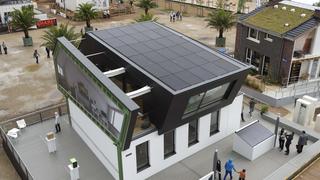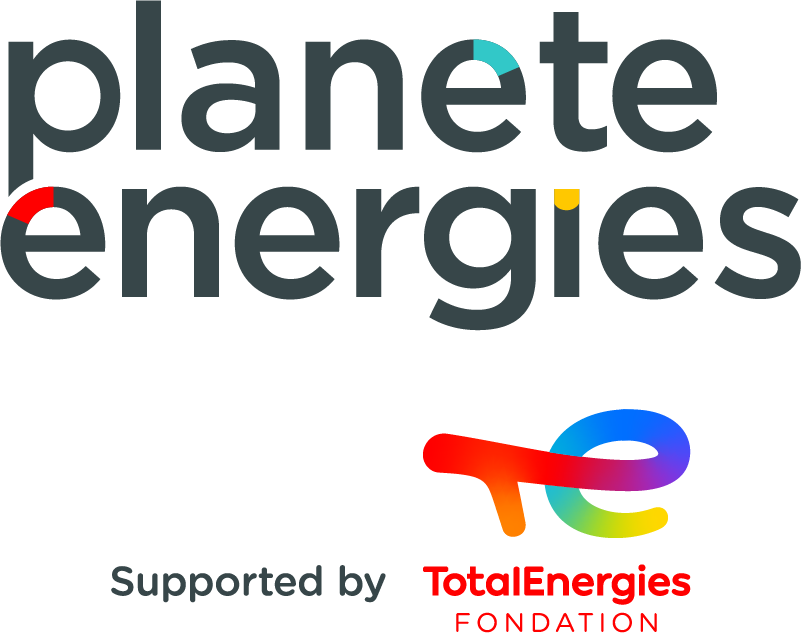Energy, Ever-Present in Our Daily Lives
5 min read
Everything we do requires energy, but we only really notice when it’s time to pay, whether for home heating and , gasoline or other consumer goods. Reducing consumption cuts bills and reduces emissions that are harmful to the climate.

© DA SILVA AUGUSTO - TotalEnergies - A "house of the future" at the Solar Decathlon Europe 2014 in Versailles, France.
Household Consumption
How much does your family spend on energy for heating, electricity to their various devices, and transportation? Of course, this depends on their consumption habits, the size of their home, their modes of transportation and the energy sources used, which vary in cost – but it can be useful to look at averages.
In 2021, around 9 % of a household’s budget in France is spent on energy-related costs. This is a relatively stable share, which had risen during the 1973 and 1979 oil shocks, but is now back under control. In recent years, sudden variations in energy prices have been tempered in France by “tariff shields” (government measures to cap the rise in electricity and gas prices) or calls for sufficiency, which are generally well received by the French. This was the case in late 2022 and early 2023, when gas prices rose in response to the war in Ukraine. The other major expenses for families, accounting in total for over 90% of budgets, are rent, food, clothing and consumer goods, schooling and leisure activities.
How Do Household Energy Costs Fit into Budgets?
In 2021, households spend an average of slightly more than €1,700 per year on their home’s energy needs, with over €1,000 of that on electricity. Taxes (VAT, energy taxes) account for nearly a quarter of these costs. According to the French Environment and Energy Management Agency (ADEME), heating and domestic hot water make up around 66% of energy bills, with household appliances and multimedia products representing 24% and cooking 10%. It should be noted that while household appliances are more efficient, electricity consumption linked to multimedia use (TV, consoles, telephones, etc.) has increased by more than 10% per year over the last ten years, according to ADEME. The proportion spent on heating can of course vary greatly depending on weather conditions in winter and geographic location.
What About Private Transportation?
In 2021, households spend on average the same amount on individual transport, i.e. just over €1,400 on (excluding car purchase and maintenance costs). Taxes account for 58% of this total, and have risen sharply due in particular to the introduction of the climate-energy contribution and the alignment of and petrol taxes. There are major disparities between regions. Ile-de-France residents spend 16% of their total budget on travel (individual or collective), compared with 21% for provincial residents.
Working Towards Responsible Consumption
In an effort to reduce the energy consumption of households and therefore their , i.e., emissions, steps have been taken by public authorities, who have introduced various regulations, and by manufacturers, who are continually improving insulation materials and technologies.
- Housing energy performance: The French government has made it mandatory to obtain an energy performance certificate (EPC) for the sale, construction or rental of housing, offices and retail premises. Carried out by independent experts, it estimates a building's annual energy consumption and its impact in terms of greenhouse gas emissions. Initially purely indicative, it becomes binding for certain leases, sales contracts or loans. According to ADEME, good insulation can save up to 60% on gas and electricity bills.
- Domestic appliances: The same system of ranking energy consumption into levels, symbolized by color coding, has been introduced for appliances such as refrigerators, television sets and washing machines. Color coding is used to indicate energy consumption among other aspects (capacity, noise, etc.).
- Private transportation: Since 2006, every new car has an energy label stating its fuel consumption and how many grams of CO2 it emits per kilometer. Based on this, tax incentives, such as a feebate scheme, have also been introduced to encourage buyers to opt for more environmentally responsible models. Finally, European countries have decided to move towards the widespread use of electric cars. On average, recharging an electric vehicle is cheaper than filling up a tank of petrol.
Everyone's business
Improving isn’t just a job for governments and industries. Consumers are also increasingly involved.
A few simple habits adopted by well-informed consumers can have a major impact on energy performance in households, transportation and consumer goods if lots of people do them. According to ADEME, turning down the heating thermostat by even one degree can save you an average of 7% on your heating bills.
ADEME regularly publishes brochures on simple gestures to reduce water, energy and electricity bills.














